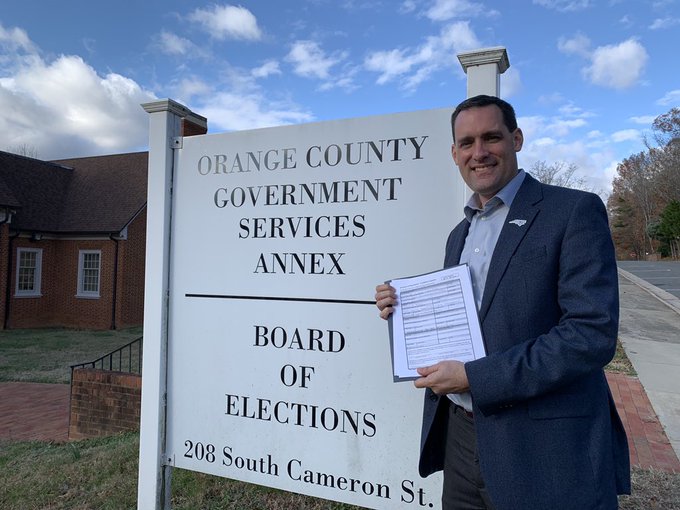On the day filing opened for state house and senate representatives, House District 50 representative Graig Meyer filed for re-election to his fifth term.
Meyer, who represents most of Orange County except for Chapel Hill and Carrboro, has been in North Carolina’s House of Representatives since 2013. He says he’s motivated by his hope to be part of sweeping changes if the Democratic party can gain a majority. Expanding Medicaid, addressing rural North Carolinians’ health and access needs and fully funding public schools are just some of the goals he wants the state to achieve.
“There’s a lot of good we can do for the state of North Carolina,” Meyer says. “I’ve got a long list of bills Republicans haven’t been willing to hear. I want the chance to be able to put some of things into law and set some priorities for the state.”
While Meyer’s district did not change following the approval of new voting district maps for the 2020 election, he says his party is still suffering from the effects. As co-chair of the House Democrats Campaign Committee, he helps recruit people to run as candidates in districts. But state legislative district maps were not set until late October due to the gerrymandering case against their construction.
Meyer says he believes some potential candidates have been tentative to join not just because of the uncertainty around which map would be used, but also because they still favor Republican lawmakers.
“The big thing is the maps are still gerrymandered,” says Meyer. “It doesn’t take much for a smart person to look at the map or numbers and say, ‘why would I run for this, I’m going to lose.’”
Meyer says the committee is looking to build on success from the 2018 elections, when a Democratic candidate ran in all 170 races. He says despite the maps’ construction, he focuses on pitching potential candidates the ways they can still impact what issues get addressed by the state legislature.
“We kind of turn that around on people and say, ‘besides winning, what else do you want to do for your community through your campaign,’” Meyer says. “If you can bring people together and get your opponent to agree with you on some issues that they’ll go back to Raleigh and work on, you can make a difference even if you don’t win the election.”
The filing period for the 2020 state elections runs through Friday December 20.
Photo via Graig Meyer.
Related Stories
‹
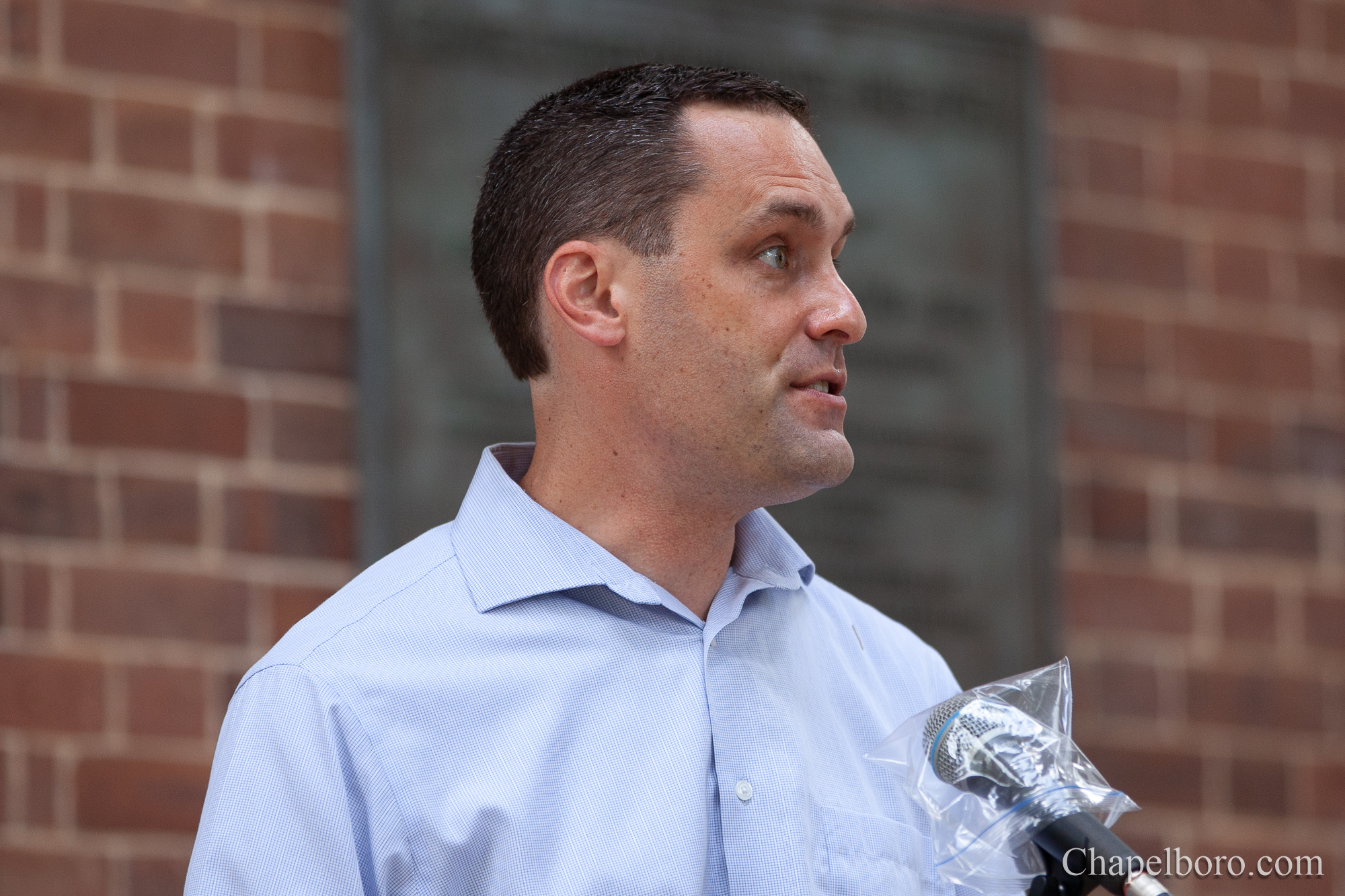
Orange County Representative: Momentum Possible for Bipartisanship NC Budget in 2021North Carolina’s General Assembly returns for its first sessions of 2021 on January 13. In addition to addressing the ongoing COVID-19 pandemic and relief for residents, the legislature has an opportunity to work on a long-standing stagnant item: a new budget. The state has operated off of a budget approved in 2018 after two years […]

Supreme Court Hearing Oral Arguments in NC Gerrymandering CaseMaria Palmer helped register people to vote in Orange County before the 2018 general election. But when she tried to convince people who hadn’t registered, she says she often got the same response. “People would tell me, ‘What’s the point? We know who’s going to be elected; there’s not any competition. It’s going to be […]
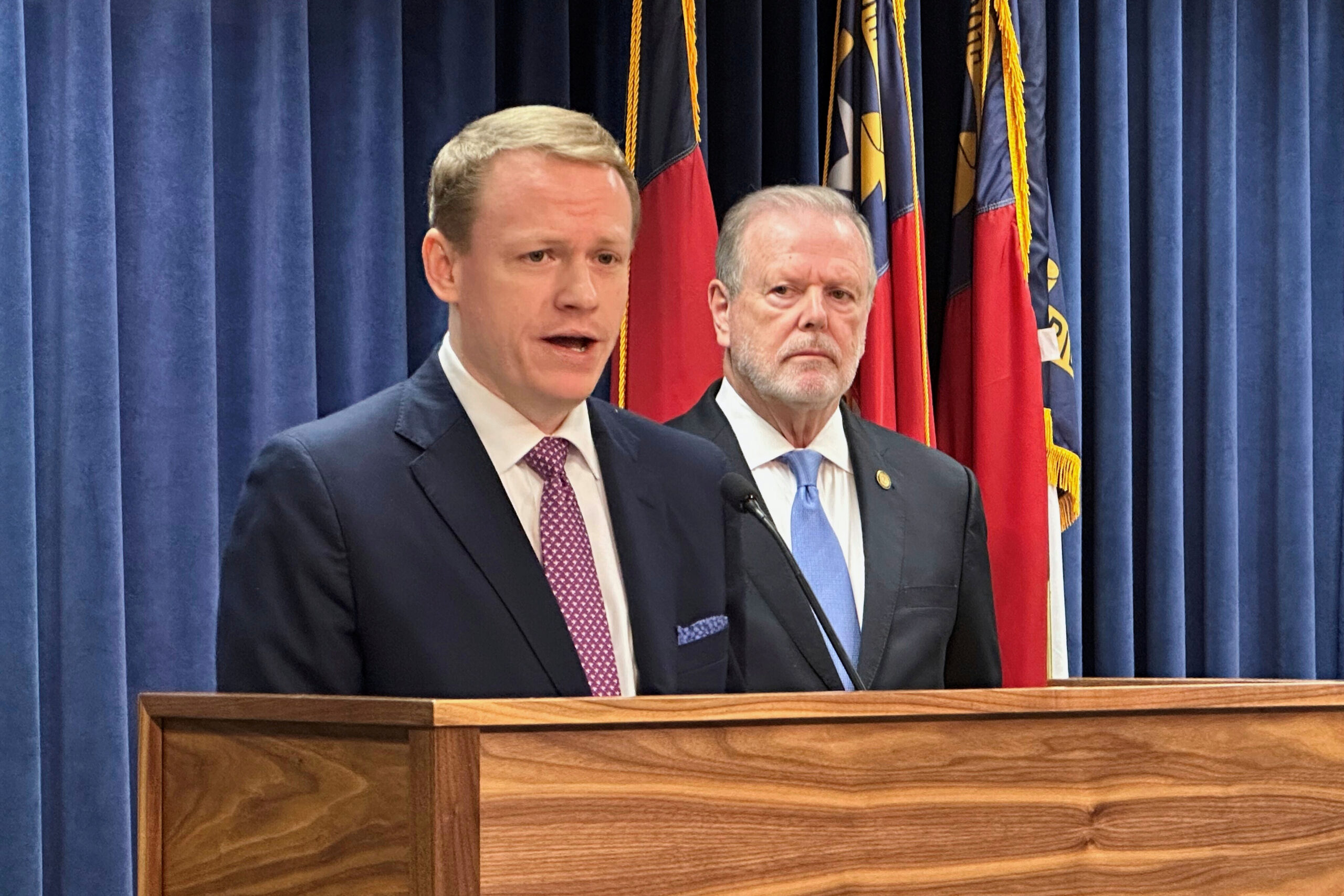
North Carolina GOP Announce Plans to Vote on New House Map Amid Nationwide Redistricting BattleNorth Carolina Republican legislative leaders announced plans to vote on redrawing the state's U.S. House district map for 2026 elections.
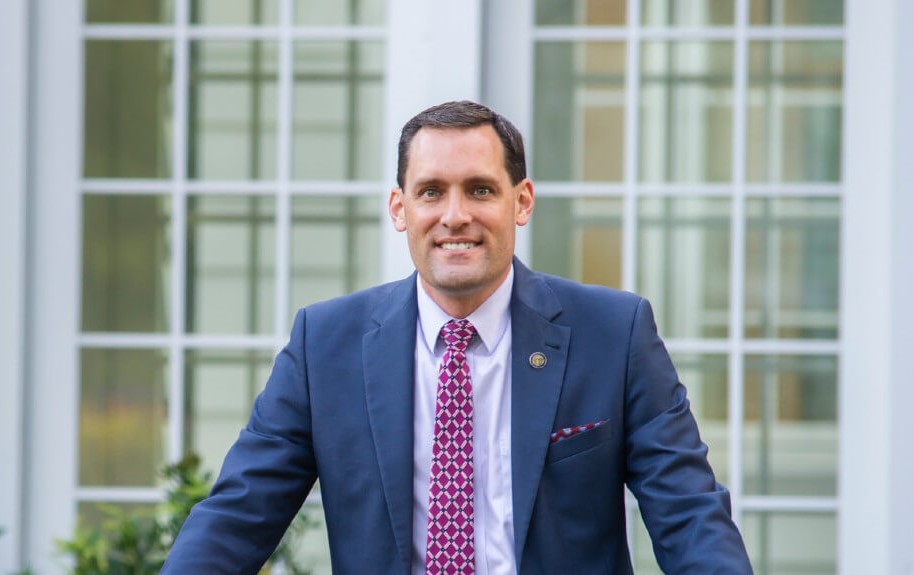
Sen. Graig Meyer Shares Updates on State Budget Impasse, Medicaid, Disaster Relief and MoreAhead of the North Carolina General Assembly reconvening, state Sen. Graig Meyer joined 97.9 The Hill to discuss several topics on his mind.
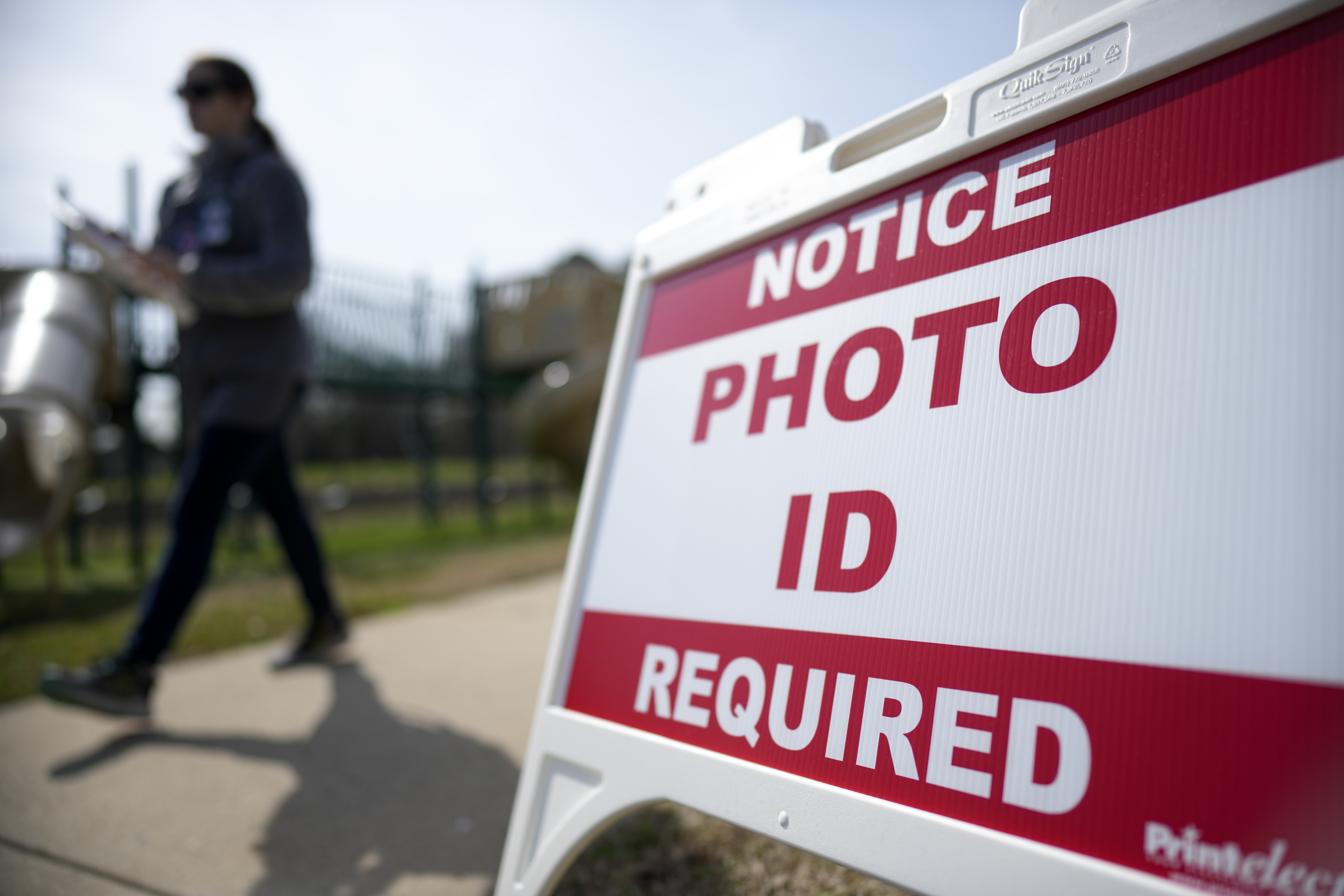
North Carolina Voter ID and Tax Cap Amendments Are Enforceable, Judges RuleTwo North Carolina constitutional amendments approved in 2018 — including a voter ID mandate — are enforceable, a trial court panel ruled.
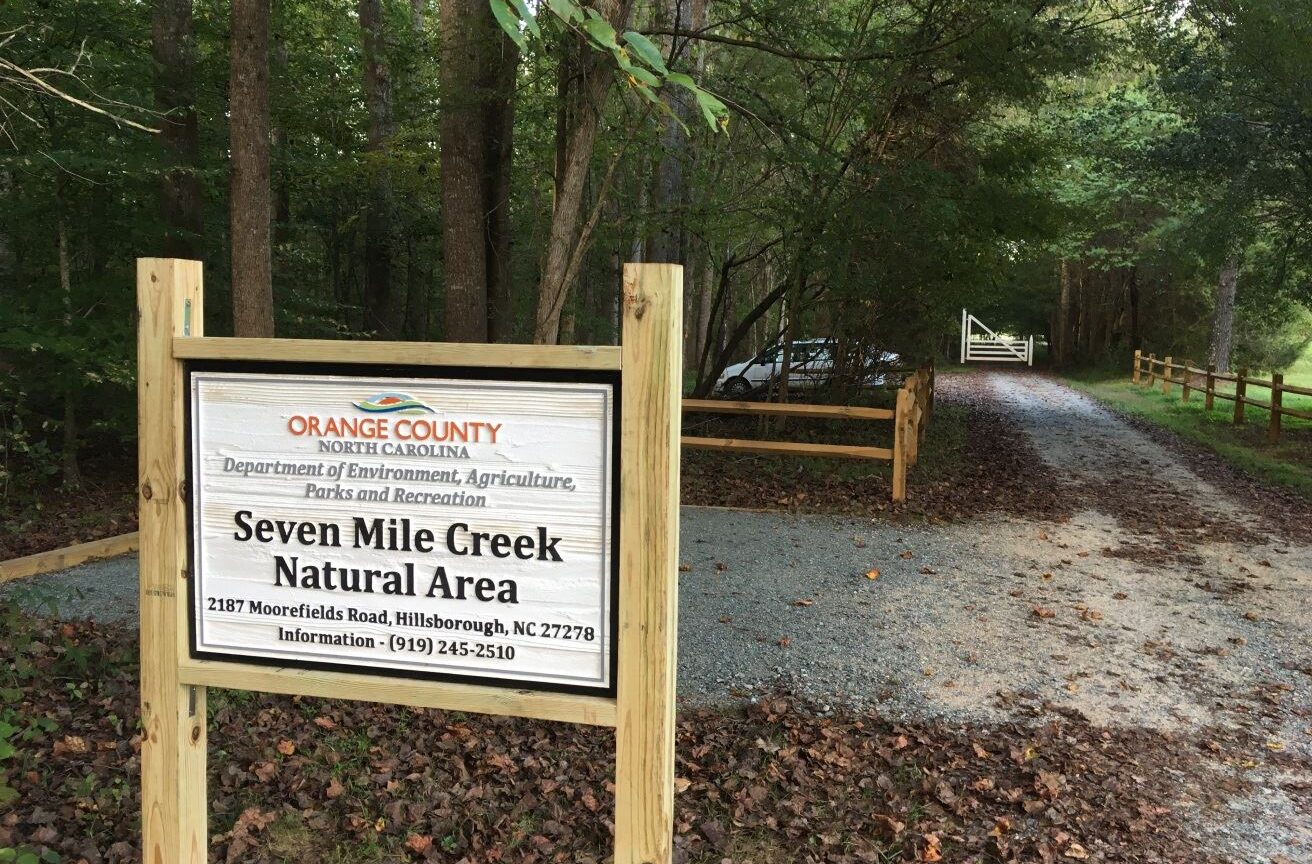
Orange, Chatham Counties Receive Expansion Funding from Great Trails State ProgramAmong the 37 trail development and restoration projects in the Piedmont region are trails in Orange and Chatham counties.
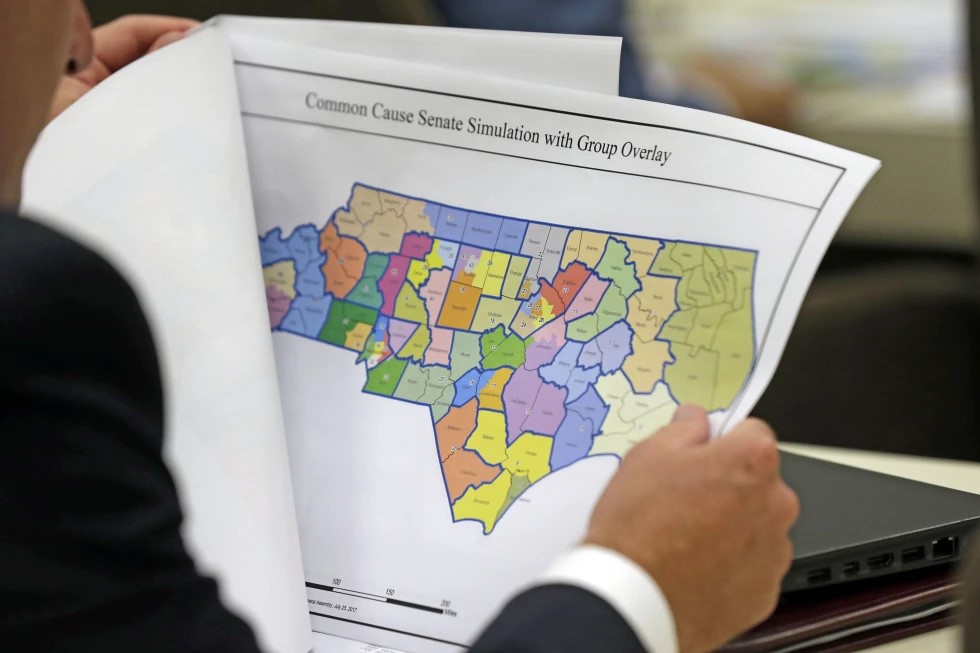
North Carolina Redistricting Trial Begins, With Racial Gerrymandering Allegations the FocusNorth Carolina districts drawn by Republicans that helped retain majorities in Raleigh and Washington are a topic in federal court this week.

'Not A Time For Political Hobby-ism': Orange County's NC Senator Urges Action Amid Authoritarian ShiftNorth Carolina Senator Graig Meyer, who represents Orange County, offered advice to his constituents who feel disheartened or disillusioned.
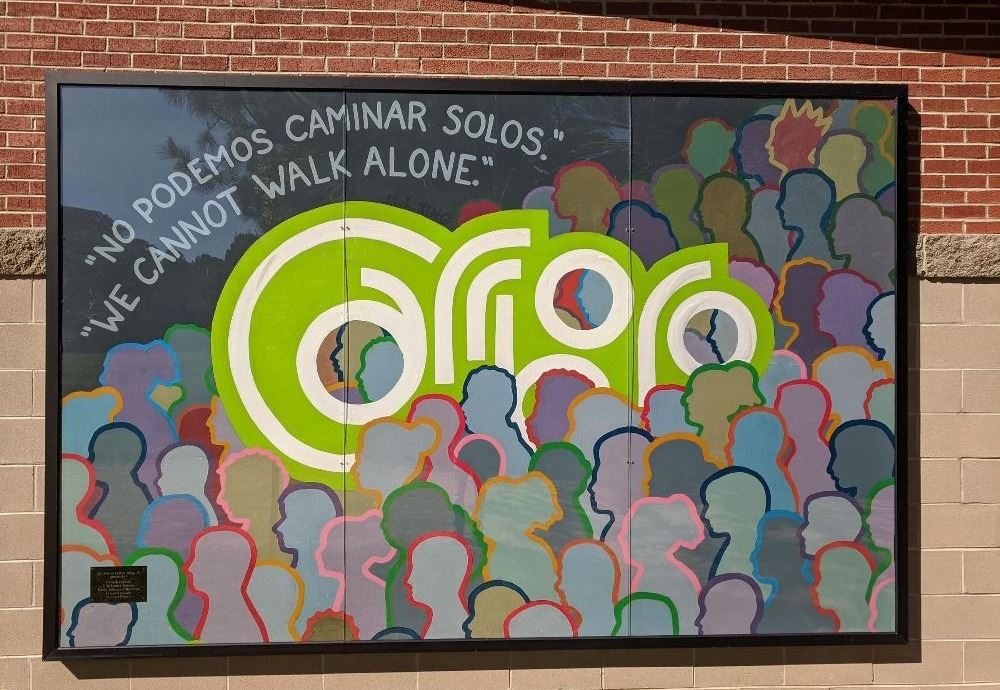
Orange County's NC Reps, Local Governments React to Anti-Diversity and Equity MeasuresAs a bill in the North Carolina House aims to ban diversity improvement efforts, local elected officials from Orange County are speaking out.

2024 Candidate Introductions: North Carolina House Districts 50 and 56Orange County is represented by two districts in the North Carolina House: District 56 (Chapel Hill and Carrboro) and District 50 (the rest).
›

